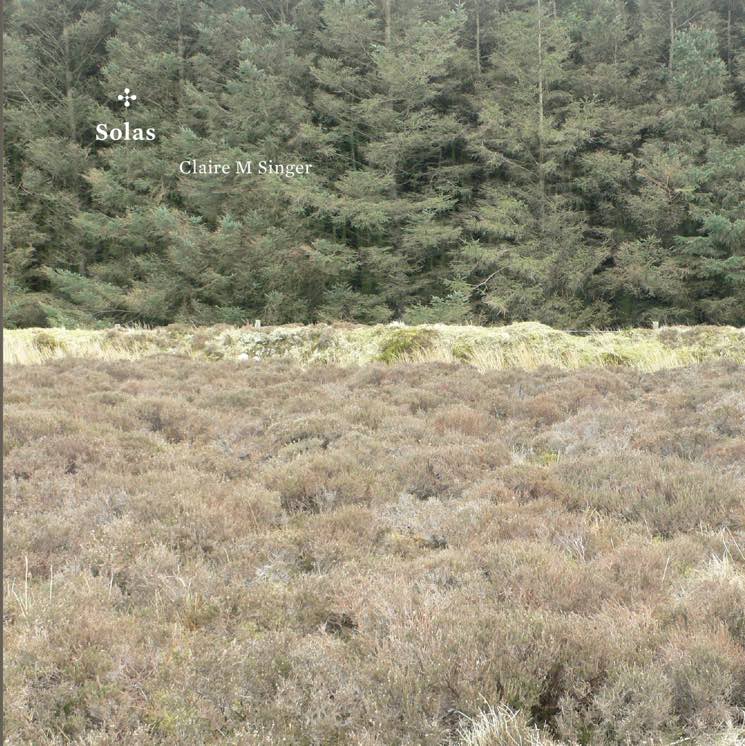Claire M Singer is a composer whose recent work has incorporated a mix of organ, cello and electronics. Though modern in her approach, her music evokes bucolic bliss through serene and earthy textures, so while 'art music' might connote orthodoxy for some, Singer's play with electronics and transcendent minimalism help her stand out.
Solas is Singer's debut album of material, collected over 14 years of work. The time and thought poured into this music have enriched it — this sounds like the music Tim Hecker might have composed if he never had access to a computer. Though there is some electronic manipulation present here, it's blended into the acoustic instrumentation smoothly and harmoniously.
The fact that closer "The Molendinar" required its own disc for its mammoth 26 minutes might indicate its significance. The first nine minutes feature a drone that builds gradually, more insistent than lulling, yet less directional than pushing; it's omnipresent but not oppressive, almost as if we could open our ears enough to hear trees breathing in chorus. That opening of our ears seems to be the point, because very gradually, around the 10-minute mark, a slow melody begins to emerge from the fog. The way the organ builds and drones at the same time evokes both the majesty of liturgical music and the dark atmospherics of doom.
Elsewhere, "Ceò" offers a warm and warbly play with sci-fi electronics and samples of acoustic instruments, while "Solas" quite clearly conjures a lush and expansive sunrise. In fact, all of these pieces offer some form of cinematic stimulation, leading one to wonder which filmmakers might be lucky enough to collaborate with this talented sound artist.
(Touch)Solas is Singer's debut album of material, collected over 14 years of work. The time and thought poured into this music have enriched it — this sounds like the music Tim Hecker might have composed if he never had access to a computer. Though there is some electronic manipulation present here, it's blended into the acoustic instrumentation smoothly and harmoniously.
The fact that closer "The Molendinar" required its own disc for its mammoth 26 minutes might indicate its significance. The first nine minutes feature a drone that builds gradually, more insistent than lulling, yet less directional than pushing; it's omnipresent but not oppressive, almost as if we could open our ears enough to hear trees breathing in chorus. That opening of our ears seems to be the point, because very gradually, around the 10-minute mark, a slow melody begins to emerge from the fog. The way the organ builds and drones at the same time evokes both the majesty of liturgical music and the dark atmospherics of doom.
Elsewhere, "Ceò" offers a warm and warbly play with sci-fi electronics and samples of acoustic instruments, while "Solas" quite clearly conjures a lush and expansive sunrise. In fact, all of these pieces offer some form of cinematic stimulation, leading one to wonder which filmmakers might be lucky enough to collaborate with this talented sound artist.
